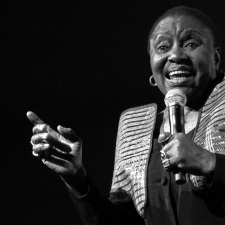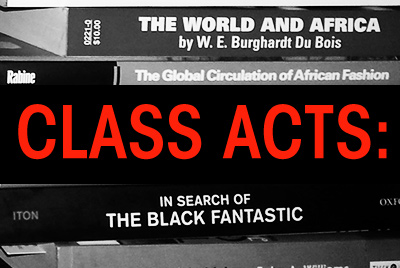In exploring the infinite realms of the Internet, we can explore far-reaching corners of the globe. I feel that the best way to remotely explore a culture is through its music, and people often discourse about world music through the languages of folk, mass, and art discourse. One example I found particularly interesting the songs of the Xhosa people of South Africa. What makes this language and music distinctive is its use of click consonants, made by pressing the tongue against the roof of the mouth and forcefully bringing it down, making a popping noise. This creates a unique style of song when it is placed in lyrics.
Miriam Makeba’s “Click Song,” 1979
Miriam Makeba (1932-2008), known as Mama Afrika, was the most prominent Xhosa singer, and her music is often discussed in folk discourse. Her music is indigenous to a certain area (South Africa) and a small group of people (the Xhosa people). Her music can be viewed as a counter-hegemonic strategy, often referred to in folk discourses. In fact, she won a Grammy in 1966 for “Best Folk Recording” for her album with Harry Belafonte discussing Apartheid conditions in her country. Until the 1990s, South Africa struggled under the Apartheid system, where minority whites held power over the majority black ethnic groups, and treated them as second-class citizens. Her music was a way of preserving her culture and speaking out against the government – not in the form of politically charged lyrics, but in a way of exposing to the world the depth of Xhosa culture and by educating the world, exposing them also to the indignities of apartheid. When we wonder, “Why are people listening to this music at this time in this place?” we often discuss this in a folk context – the songs are traditional songs dating back hundreds of years, and the songs are unique to a small subset and often sang and heard to oppose current power structure.
But what about mass and art discourses? Because world music is often local to a certain small group, the folk discourse often prevails. However, some musicians introduce world music culture into the mainstream, where they are treated with mass/popular culture discourses instead. For example, The Beatles introduced Sanskrit phrases and sounds after a stint of meditation at an ashram in India; the song “Across the Universe” repeats “Jai guru deva om” (roughly translated as “Victory to God divine”) and George Harrison introduced sitar music in “Norwegian Wood.” In cases like these, some of the meaning of the world music is lost in popular culture – the inherent history and meaning of folk music is often overlooked by the masses, and when world music becomes mainstream, it is almost seen as a novelty instead of a cultural treasure.
The Beatles, “Across the Universe”
By that same token, some people view world and cultural music as an art form, something that listeners will be better off for hearing simply because of what it is. When we think of music outside the US, some sort of “world music,” we often think of African or Asian music, the Eastern styles that sound so foreign to our Western ears. But shifting the paradigm can allow for a different discourse. In China, for example, musical history dates back thousands of years, and the study of music from Confucian times, like the “Solitary Orchid” piece played on the instrument called guqin, often takes the form of art discourse when viewed historically and academically. Just as we look at European classical music as having some inborn aesthetic value that makes it worthwhile to hear, in China, ancient music is revered and though of in the same way. We often adopt a Eurocentric model of art discourse and “high culture,” but shifting viewpoints can reveal a different organization of thought.
When listening to the music of the world, we are inherently engaging in the forms of art, mass, and folk discourse. Often the folk viewpoint prevails, but the inclusion of ethnic music into popular culture and the study of historical world music in art culture are ever-present.
Robbie Berg
Jieshi Diao Youlan (Solitary Orchid), performed on a guqin
Tags: Chinese Music, Miriam Makeba, The Beatles, World music

 Share On Facebook
Share On Facebook Tweet It
Tweet It





